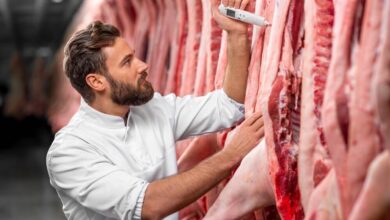From Amateur to Chef: What To Expect in Culinary School

Embarking on a journey in culinary education is an exciting endeavor that can open doors to a world of gastronomic possibilities. Whether you’re a home cook looking to formalize your skills or an aspiring chef dreaming of taking your talent to professional kitchens, culinary school can provide the structure and expertise necessary to refine your craft. This transformative experience combines theoretical knowledge with hands-on training, culminating in a dynamic learning environment. In this article, we’ll explore the key aspects of culinary education and what students can anticipate as they delve into the culinary arts. Keep reading to discover the essential components that contribute to the making of a skilled chef.
Understanding the Culinary School Landscape
The culinary school landscape offers diverse programs, from specialized institutes to university departments, with options like certificates, diplomas, or degrees tailored to varying experience levels and career goals. Understanding how long is culinary school is crucial, as certificate programs may take months, while degrees typically span two to four years, making it important to match program duration with personal and professional plans.
Faculty experience and facilities play a vital role, with seasoned instructors providing industry insight and hands-on training in kitchens that mirror real-world environments. Location also shapes the experience, as schools in gastronomically rich areas allow students to engage with local food culture, enhancing their culinary knowledge and appreciation.
Navigating the Curriculum: Courses and Practical Sessions
Culinary school curricula blend the science and artistry of cooking, covering essential topics like food safety, nutrition, and cooking principles. Core courses establish a strong foundation for all future learning, while practical sessions in kitchens let students apply techniques ranging from basic to advanced. These hands-on experiences encourage experimentation, innovation, and skill development under instructor guidance.
Students can further specialize through courses in areas such as pastry arts, international cuisines, or modernist techniques, helping them define their culinary focus. Many programs also incorporate business and hospitality management, equipping students with operational and entrepreneurial skills. This combination prepares graduates to succeed across all facets of the culinary industry.
Mastering the Knife: Fundamental Skills You’ll Learn
Culinary education begins with mastering essential kitchen skills, with knife proficiency as the foundation. Students learn knife safety, proper handling, and basic cutting techniques like chopping, slicing, and dicing. These skills ensure precision, efficiency, and safety in food preparation. Once confident with knives, students expand to advanced techniques, including butchering meats, filleting fish, and preparing vegetables with accuracy and finesse, reflecting a chef’s expertise and attention to detail.
In parallel, students develop time management and organizational skills through mise en place, learning to execute tasks efficiently under kitchen pressure. They also cultivate a refined palate, understanding how cooking methods impact taste and texture, enabling thoughtful flavor balancing and informed culinary decisions.
The Heat of the Kitchen: Real-World Cooking Challenges
Culinary school immerses students in high-pressure, real-world cooking challenges, from timed assignments to mystery basket exercises and team collaborations. On-site restaurant training exposes students to actual clientele, emphasizing consistency, speed, and presentation—skills essential in professional kitchens. These experiences sharpen problem-solving abilities and adaptability, preparing aspiring chefs for industry demands.
Capstone projects and externships allow students to apply their skills in professional settings, gain practical experience, and build industry connections. Collaborative events like cooking competitions and charity dinners further develop teamwork and community engagement, fostering personal growth while strengthening essential kitchen dynamics. These hands-on opportunities bridge classroom learning with career readiness.
Career Pathways After Culinary School: What’s Next?
Culinary school graduates can pursue diverse career paths, from line cooks in top restaurants to launching their own food ventures. Specialized roles like pastry chefs, sommeliers, or food stylists allow graduates to leverage unique skills, while alternative paths include food writing, culinary education, and product development. The rise of digital media also opens opportunities as food influencers or creators, and some may focus on sustainable food practices or policy advocacy.
Continual professional growth is key, with networking, workshops, and certifications helping chefs refine skills and stay current. Those aiming for leadership can advance through restaurant management or hospitality studies, opening doors to roles such as executive chef, food and beverage director, or restaurant owner.
Overall, culinary school is a gateway to a dynamic and rewarding career for those with a passion for the culinary arts. The education received melds practical kitchen skills with theoretical knowledge, setting the foundation for success in the exhilarating world of food. Regardless of the chosen career path, the skills and experiences gained from culinary school are instrumental in shaping discerning, creative, and capable professionals in the field of gastronomy.




